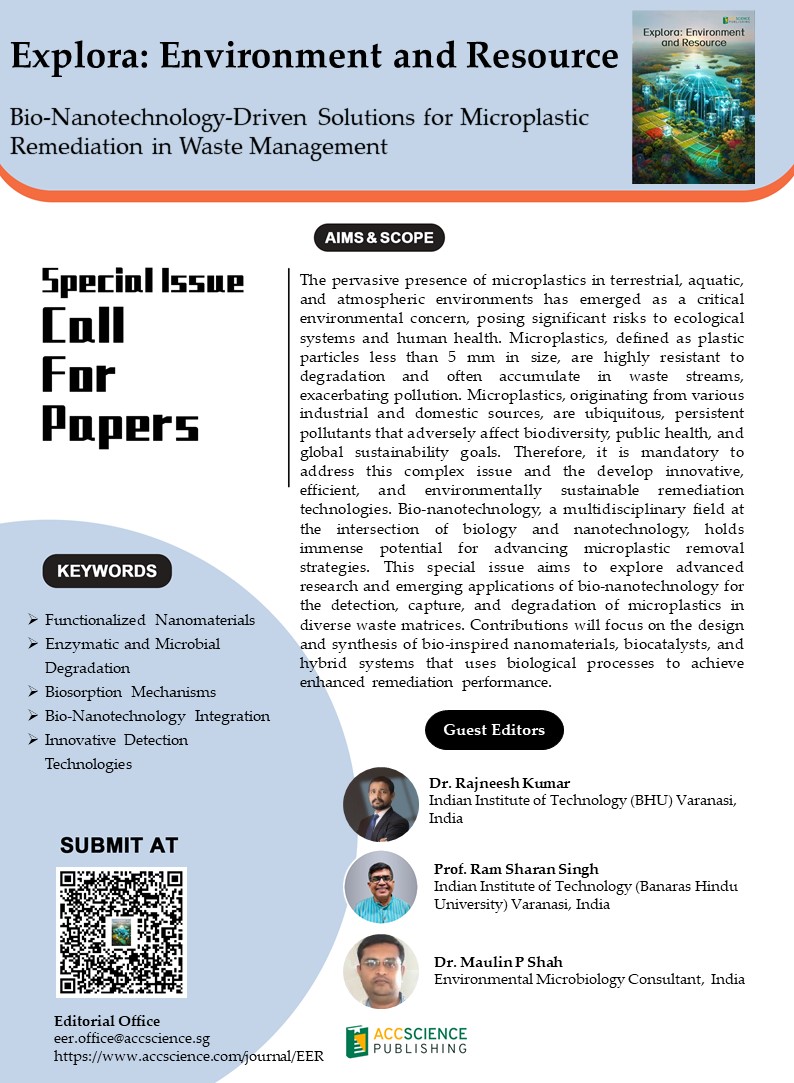
Department of Chemical Engineering & Technology, Indian Institute of Technology (Banaras Hindu University) Varanasi, Varanasi, Uttar Pradesh, Indiabioremediation of liquid, solid and gaseous waste; biofuel; monitoring and physicochemical characterization of black carbon in indo gangatic plane; green technology; process control; physicochemical characterization of ayurvedic formulations

The pervasive presence of microplastics in terrestrial, aquatic, and atmospheric environments has emerged as a critical environmental concern, posing significant risks to ecological systems and human health. Microplastics, defined as plastic particles less than 5 mm in size, are highly resistant to degradation and often accumulate in waste streams, exacerbating pollution. Microplastics, originating from various industrial and domestic sources, are ubiquitous, persistent pollutants that adversely affect biodiversity, public health, and global sustainability goals. Therefore, it is mandatory to address this complex issue and the develop innovative, efficient, and environmentally sustainable remediation technologies. Bio-nanotechnology, a multidisciplinary field at the intersection of biology and nanotechnology, holds immense potential for advancing microplastic removal strategies. This special issue aims to explore advanced research and emerging applications of bio-nanotechnology for the detection, capture, and degradation of microplastics in diverse waste matrices. Contributions will focus on the design and synthesis of bio-inspired nanomaterials, biocatalysts, and hybrid systems that uses biological processes to achieve enhanced remediation performance.
Key areas of interest include, but are not limited to:
- Development of functionalized nanomaterials for microplastic adsorption and separation from complex waste systems.
- Application of enzymatic and microbial degradation pathways, facilitated by bio-nanostructures, to accelerate microplastic breakdown.
- Biosorption mechanisms behind bio-nanocomposites, microbial biofilms, or engineered biopolymers for targeted microplastic capture.
- Integration of bio-nanotechnology in waste management processes, scalability, cost-effectiveness, and environmental sustainability.
- Innovative detection technologies for microplastics, employing nano-sensors or bio-nano-systems to enhance sensitivity and specificity.
This special issue will also address the challenges of transitioning bio-nanotechnological solutions from laboratory-scale innovations to real-world applications. Manuscripts focusing on lifecycle assessments, economic feasibility, and case studies demonstrating practical deployment are particularly encouraged. The ultimate objective is to facilitate the development of sustainable and transformative waste management solutions that address the pressing global challenge of microplastic pollution.



